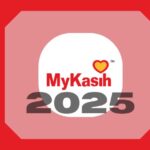In the rapidly evolving business landscape, the ability to deliver compelling proposals swiftly and efficiently can make all the difference in securing new opportunities and fostering growth. Proposal management tools have emerged as indispensable assets for organizations aiming to enhance their productivity and win rates. These tools not only help in automating key aspects of the proposal development process but also bring unparalleled clarity and collaboration across teams. Below, we delve into the various benefits these tools offer and how they can transform the way your business approaches proposal management.
Understanding Proposal Management Tools and Their Impact on Efficiency
Proposal management tools simplify and speed up the process of creating and sending business proposals by automating tasks and keeping everything organized in one place. This efficiency shortens the sales cycle and gives teams more time to focus on other priorities.
These tools also encourage teamwork with collaborative features, ensure compliance with role-based controls, and help businesses respond quickly to RFPs. Even small companies can benefit, as proposal management tools are easy to use and don’t require heavy IT support.
Streamlining Proposal Creation with Automated Templates and Integration
Proposal management tools utilize automated templates that can be customized to fit various business needs, ensuring proposals are generated quickly and maintain a consistent brand voice. This consistency reinforces a professional image and fosters trust among potential clients. Proposal management tools also offer integration with other business systems, such as CRM platforms, allowing easy import of client-specific information into proposals.
This minimizes errors and ensures personalized proposals. Automated workflows within the proposal process reduce bottlenecks and enhance productivity. Once a stage is completed, team members are notified, ensuring a smooth transition between tasks. The built-in flexibility of automated templates allows companies to respond to unique RFP requirements with agility, creating a series of templates for different scenarios.
Enhancing Team Collaboration and Communication through Proposal Management Software
Modern software solutions are revolutionizing proposal management by enabling real-time co-authoring and commenting, allowing team members to work from any location. Built-in messaging and notification systems streamline communication, ensuring everyone is on the same page and reducing misunderstandings. Proposal management tools often feature integrated content libraries, ensuring the most up-to-date and accurate content for product specifications, pricing, and legal terms.
Vendor selection and team briefings can also be managed within the software, ensuring alignment with the chosen strategy and understanding of the project’s scope and objectives. This seamless collaboration leads to a more coherent and convincing proposal. Modern software solutions are making proposal management more efficient and effective.
Leveraging Analytics and Reporting Features for Better Business Decisions
Proposal management tools offer analytics and reporting to help businesses understand the effectiveness of their strategies. By tracking metrics like win rates, time to completion, and client engagement, these tools help businesses identify strengths and areas for improvement. The software generates detailed reports that reveal trends over time, helping businesses understand which proposals resonate best with clients.
This knowledge informs future proposal creation, ensuring successful elements are replicated and less effective aspects are revised. Tools like electronic signature tracking and read receipts help gauge client interest and follow-up timing, enabling sales teams to take timely actions. Analytics can also be used to assess the performance of different departments within a company, promoting healthy competition and sharing best practices, ultimately enhancing overall proposal quality.
The Role of Proposal Management Tools in Risk Mitigation and Compliance
Proposal management tools are crucial for businesses to ensure data privacy and regulatory compliance. These tools provide secure platforms for safeguarding confidential information through robust encryption and access controls, providing peace of mind for the proposal team and potential clients. They also support audit trails and compliance tracking, ensuring proposals meet industry-specific regulations and standards.
Control over who can view or edit specific sections reduces the risk of information leakage, ensuring the final proposal is a product of collective expertise without exposing sensitive details. Proposal management tools often feature update and approval workflows, ensuring thorough vetting before submission. This includes stages of review and revision, catching potential errors or compliance issues, thereby mitigating the risk of technical rejection.
Overall, the adoption of proposal management tools can lead to a transformative shift in how businesses approach the proposal development process. These tools not only streamline proposal creation and bolster team collaboration but also provide valuable insights and reinforce compliance and security protocols. By embracing these tools, companies are empowered to produce compelling proposals more efficiently, contributing to increased success rates and improved business outcomes.










